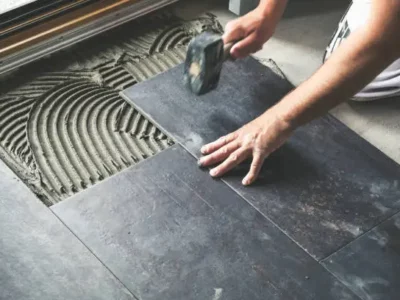Buying a new home is one of life’s most exciting events, and there aren’t many feelings to match getting handed the keys to your just-bought pad for the first time. With so much to do during this period, it can be easy for some things to slide under the radar: but sorting out a home warranty plan is vital and should be at the top of your to-do list.
A home warranty should provide your property with a high level of cover so that there’s no risk of an unexpected and expensive repair bill cropping up; plus, it gives you the peace of mind that your new house is taken care of, should a fault occur that needs fixing urgently. Below we explore precisely why you need a home warranty in more detail and what you should check it includes before taking out a policy.
What is a Home Warranty?
Home warranty and home insurance are two different things: a property’s major appliances and systems (such as some white goods and plumbing) are covered by a home warranty – wear and tear and normal failure are usually covered without the need for there to have been a natural disaster, as is the case with many insurance policies.
Home warranties are a popular way for homeowners to cover their property against a variety of issues that could cause damage to some of the house’s key components and mean that repairs can begin quickly to get things back on track.
How to Choose a Home Warranty Plan
There are a plethora of companies out there offering home warranty packages – and not all home warranty plans are made equal. It’s vital to understand exactly what you need to be included in your package, the price of the plan, and the nature of all the small print. These are the things to consider when weighing up which home warranty plan to go with:
What Cover is Included
Most home warranty plans will include protection for your home’s major appliances and systems but check this carefully to make sure that you will, indeed, be getting the cover you’re expecting. Things like the water heater, general heating system, plumbing, ductwork, ceiling fans, range, and dishwasher are usually included, but you made need to pay for an upgraded plan if you would also like your air conditioning system, washing machine, tumble dryer and refrigerator covered, too.
It’s crucial to check when the cover will become effective – is it active as soon as you sign up for the plan?
Accessing Support
If the worst happens, and you need to make a claim, you’ll no doubt want to be able to get hold of a member of staff as soon as possible; to this end, choosing a warranty that allows you to get in touch for support at any time of the day or night could be a major advantage for you. Choice home warranty 24/7 customer support lines provide warranty holders with the confidence that, if something goes wrong, they’ll be able to access the help that they need to make a claim. The quicker you submit a claim, the quicker, in most cases, repair work can begin, so choosing a home warranty provider that you can get in touch with around the clock is a good idea.
Price of Plans
The cost of the cover is also one of the most important things to consider. Some home warranty providers offer tiered plans, allowing you to choose the cover that best suits your needs and budget; for example, an enhanced plan will incur a higher monthly charge but may include air conditioning cover, which a basic plan would not. Some providers, too, will offer you the option to build-your-own cover by adding on optional extras, such as protection for your pool, sump pump, septic system, or stand-alone freezer.
Some plans offer new sign-ups for the first month or two free, so this is worth looking into, too. It’s also really important, regarding the small print, to determine whether a charge is levied upon making a claim, and the cost of the deductible, in terms of each element of cover, so that you can make a realistic and informed choice on how much the plan will cost you each month.
How Repairs or Replacements Are Carried Out
And finally, be sure to find out the provider’s policy on repairing and replacing faulty appliances or systems – are repairs made if possible, or are things replaced as standard? What qualifications and credentials do the repair technicians used by the company have, and can parts be secured quickly if needed? It’s vital to ensure that repair teams meet the highest standards. Find out, too, if the age of the appliance or system affects this: does your cover still stand if, for example, your water heater is very old?
Taking the time to go through the above list can help you to get the most cost-effective and suitable warranty plan, meaning that you can relax and enjoy your new home, knowing that if anything goes wrong, it’s covered.










